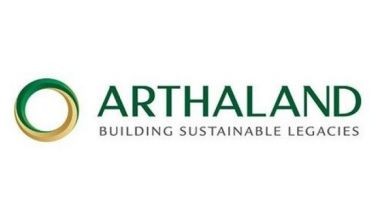Prescriptions for a slowing economy
The Philippines Statistics Authority reported last Thursday that the Gross Domestic Product (GDP) of the country grew by 6.4% in the first quarter of 2023. This is the slowest in two years coming from 7.6% in the third quarter, 7.1% in the fourth quarter of 2022, and 7.6% for the full year of 2022. The government’s pronouncement that the economy is headed in the right direction as the average is still 7%, is not exactly correct as the trend line is sloping downward. “Slope”, which is the rise over the run, indicates a downward trend. There is also the “base effect” in these percentages, as these increases came from the lower base amount in 2020, when our GDP shrank by 9.8%, which makes rebounds look good, even if per capita GDP took a beating.
The slowing down of the growth of the Philippine economy is not alarming but should be a cause of concern considering the depressing and volatile state of the economies of many countries and of the world. After the end of the COVID-19 pandemic, the Russian invasion of Ukraine, the ongoing civil war in Myanmar, Sudan, and other in-country wars, the instabilities in Pakistan, Venezuela, Sri Lanka, and Congo, plus all the other geo-political issues in Europe and Asia, point to a disrupted/slow global economic growth. The characteristic and the components of the Philippine’s GDP which are the high poverty levels, the skewed income/wealth distribution, consumption-driven high inflation and interest rates, and anemic investments also make it vulnerable to large downswings of the economy.
In the short term, management of the monetary policy by the Philippine BSP, both reactive and pro-active have been able to tame inflation and avoid financial system instability. Since the disaster in the martial law years of Marcos Sr., the BSP has been peopled with mostly professionals, and politicians have learned their lessons that financial instability leads to change in governments. On the fiscal side, a lot more has to be done on increasing production and productivity, generating local/foreign private investments, reducing graft and corruption, optimizing budget allocations, and improving government efficiency/effectiveness. And these becomes more challenging as the government’s debt level already at ?14 trillion (65% of GDP) is limiting the government’s borrowing capacity, and can only be reduced with the GDP and tax revenues growing at more than the GDP growth rates.
The political dimensions of economic growth take center stage during times of extreme instability and volatility. If we scan all the countries that are in worse or the same situation as the Philippines, it is the political problems that caused or worsened the economic woes. They either have an ongoing civil war, civil strife, overstaying autocrats, rigged elections, corrupt politicians/oligarchy, and an overall lack of democratic space. Economic growth and improving standards of living have always kept in tandem with broadening the economic base, which means increasing the middle class and expanding the domestic market. It is only a free-enterprise economy that is able to achieve this, that China and Russia have to adopt this model partially to grow their economies. The purely autocratic regimes of North Korea, Myanmar, Venezuela, and Cuba are lingering as undeveloped economies. Autocrats may spur their economies in the short-term with mandated massive state investments, but the lack of accountability and transparency makes these investments unproductive and wasteful.
Economic policy and prescriptions is not really rocket science. There are similarities in that demand and supply curves, economic growth curves are similar parabolic or asymptotic equations of ballistic/rocket trajectories and curves, but the economic equations are more susceptible to social/political behavior and government actions. Good governance in a country with democratic space is the best prescription to grow the country’s economy.
- Latest


















